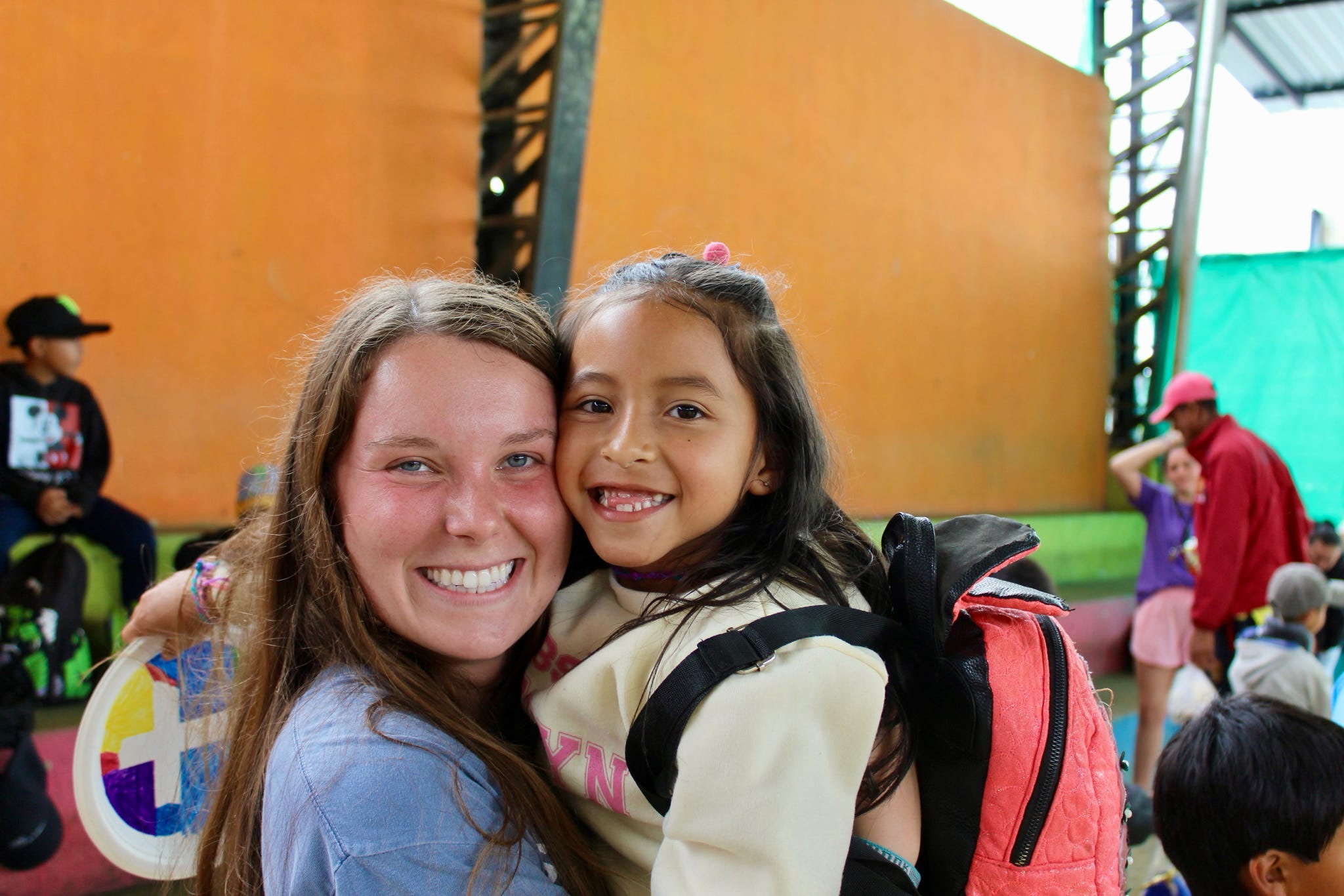
During Samford University’s 2025 spring break, students and faculty from Orlean Beeson School of Education traveled to Quito, Ecuador, to serve alongside Amor y Esperanza—Love and Hope—a school for underserved children in the city. What began as a mission trip evolved into a cross-cultural professional development partnership with a long-lasting impact on both the local Ecuadorian community and the Samford team.
Through classroom observations, teacher training and small-group instruction, the Samford delegation offered professional development for Amor y Esperanza educators while gaining invaluable insight into global education practices and the transformative power of cultural immersion.
A Mission Rooted in Love and Hope
Amor y Esperanza was first introduced to the School of Education through Samford alumni Teresa and Clayton Hemphill, whose son had participated in previous trips to the school. When the Hemphills learned that one of the school's greatest needs was professional development for its teachers, they helped initiate a connection between Amor y Esperanza and Samford’s education faculty.
Kara Chism, assistant professor and director of the Master of Science in Education’s instructional leadership program, described the school as a place full of joy and resilience.
“The teachers specifically requested training on working with special needs students and wanted us to observe their classrooms,” Chism said. “On our second day, we modeled small group instruction and differentiation to support their teaching methods.”
This experience exemplified the School of Education’s mission to prepare teachers who can thrive in any setting.
“Every undergraduate and graduate student in our program should have an international education experience,” Chism said. “It both affirms what you know and opens your eyes to new ways of teaching.”
Training With Cultural Sensitivity
Anna McEwan, dean of the School of Education, also participated in the trip and emphasized the importance of approaching international education with humility and cultural awareness.
“We can’t simply impose U.S. educational practices,” McEwan said. “We introduce new strategies carefully, making adaptations that fit within the existing system.”
In Ecuador, many classrooms are structured around memorization and recitation—methods that are deeply ingrained in the school culture. While not inherently ineffective, these approaches often present challenges for students with special needs. Samford faculty shared alternative strategies, like hands-on activities and differentiated instruction, while remaining respectful of local norms.
Teachers everywhere face the same challenge—meeting the needs of atypical learners,” McEwan said. “And the shortage of Christian educators is not unique to the U.S.”
McEwan believes experiences like these help students broaden their view of the teaching vocation. “They return with an enlarged vision of the world,” she said. “They see that God’s kingdom is so much bigger than what they’ve known.”
A Student’s Calling Confirmed
For Sarah Davis, a junior majoring in Human Development and Family Science, the trip marked her first-time visiting Amor y Esperanza—and her second life-changing experience visiting Ecuador.
“Walking into the school and hearing students and teachers singing praise to God brought me to tears,” Davis said. “In a place with so many hardships, there was overwhelming joy.”
Davis said her Samford course work gave her the confidence to engage cross-culturally, even with a language barrier. She found that her training allowed her to serve meaningfully, particularly with students with special needs—a population that often receives little attention or compassion in Ecuador.
“Just the simple act of touch truly changes lives,” she said. “I was able to apply what I’ve learned in Birmingham to teach new skills that promote inclusion and movement. The impact was immediate.”
After her first trip to Ecuador, Davis’s career trajectory shifted. She became passionate about serving individuals with intellectual and developmental disabilities and plans to pursue a Master of Social Work to specialize in that field.
“Ecuador changed everything,” she said. “I can clearly see now this is the path I’m supposed to be on.”
Lifelong Impact and Lasting Transformation
The trip left its mark on every participant. “Students came back changed,” said Chism. “Some changed their majors, others redefined their callings. But all of them returned with a deeper understanding of their purpose.”
Beyond professional growth, students were encouraged to see teaching as a platform for ministry. “I hope they remember our example,” Chism said. “Use your profession to share the Gospel.”
For Davis, the message is simple: say yes. “These trips have allowed me to grow deeper in my faith, develop lifelong friendships and gain mentors who’ve shaped my future,” she said. “If you have the chance to go—go. You never know how much it might change your life.”
As Samford continues to expand its global reach, Orlean Beeson School of Education remains committed to preparing educators who are not only skilled in their profession but also attuned to the diverse, complex realities of the classrooms they will one day lead—whether in Alabama or across the globe.
This is why, the School of Education has launched the Global Education Scholarship Fund, which aims to increase student access to meaningful study abroad and international internship opportunities, aligning with the university’s goal to enrich the Samford experience and develop global citizens.
Support this initiative by giving to the Global Education Scholarship Fund today.
